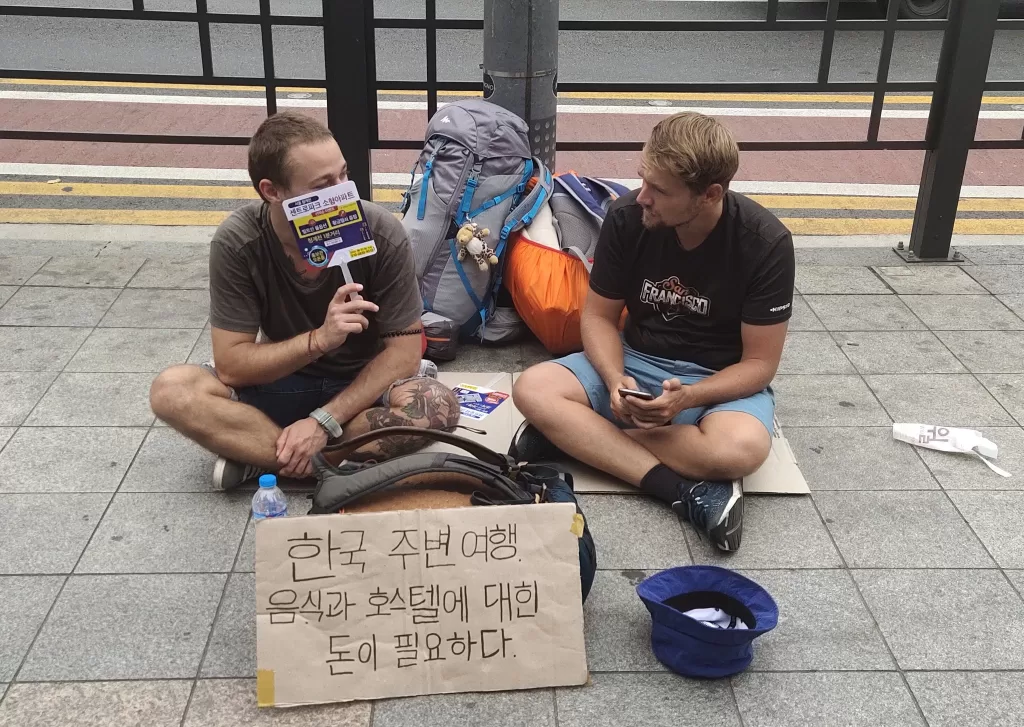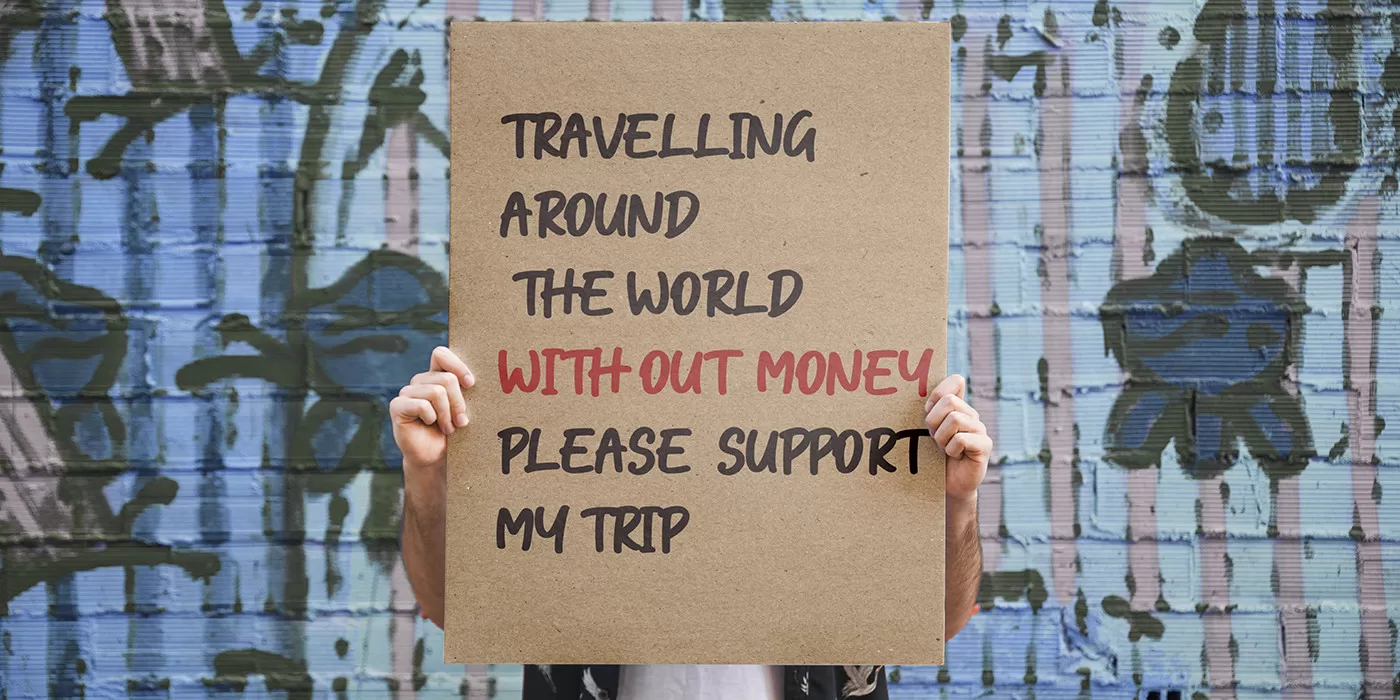Last updated on May 23, 2023
As more people are bitten by the travel bug, a new trend has emerged among some travelers – begpacking. Begpacking refers to the practice of travelers who ask locals for money or sell items on the streets to fund their travels. This trend has been on the rise in popular tourist destinations in Asia and Europe, with many backpackers using signs that read “I’m traveling around the world, please help me” or “I’m broke, give me money”.
While some see it as an innovative way to fund their travels, others view it as exploitative and disrespectful to local communities.
Who are begpackers?
Begpackers are western backpackers, most often traveling visa-free in Asia, who beg for charity from the locals. They are often seen sitting on the streets with a hat or a sign asking for money to fund their travels. Begpacking is a controversial trend in modern travel culture that has sparked debates about the ethics and morality of begging for travel funds. It is a phenomenon that has been increasing in recent years, and it is seen as a form of privilege that is perpetuated by white Westerners.
Is begpacking ethical?
The ethics of begpacking are heavily debated. Some argue that it’s a harmless way to fund a trip, while others believe that it’s exploitative and disrespectful to the local communities. Begpacking can be seen as an extension of privilege that allows some Western travelers to take advantage of poorer countries’ economies.
Furthermore, some people may see it as an act of entitlement or disrespect, as it implies that the traveler assumes they have a right to ask for money from strangers.
The Risks of Begpacking
Begpacking comes with several risks, both legal and personal. Many countries have strict laws against begging, and those caught doing it could face fines, imprisonment, or deportation. In some cases, authorities may view begpacking as a threat to national security and treat it as a criminal offense.
Begging on the streets also puts begpackers at risk of theft, scams, and physical assault. Some may see begpackers as easy targets and exploit their vulnerability.
Moreover, begpacking can create a negative image of travelers, and the tourism industry as a whole. It undermines the value of work and the efforts of those who save and budget to afford their travels. It also puts the tourism industry in a bad light, as it reinforces the stereotype that tourists are wealthy and entitled.
Instead of relying on the generosity of strangers, responsible travelers can find alternative ways to fund their trips.
Alternatives to Begpacking
There are several alternatives to begging that travelers can explore to fund their trips. One option is to work while traveling. Many countries offer work visas that allow travelers to work part-time while they explore the country. Others can take up freelance work that they can do remotely.
Another option is to participate in volunteer programs or exchange programs. These programs allow travelers to give back to the community while also gaining a unique cultural experience.
Finally, travelers can save and budget before embarking on their trips. By setting a realistic budget and cutting unnecessary expenses, travelers can afford to travel without resorting to begging.

Begpacking is a controversial trend in modern travel culture that raises ethical and safety concerns. As responsible travelers, we should aim to respect local customs and values and find alternative ways to fund our trips. By doing so, we can contribute to the positive image of travelers and the tourism industry as a whole.

Be First to Comment